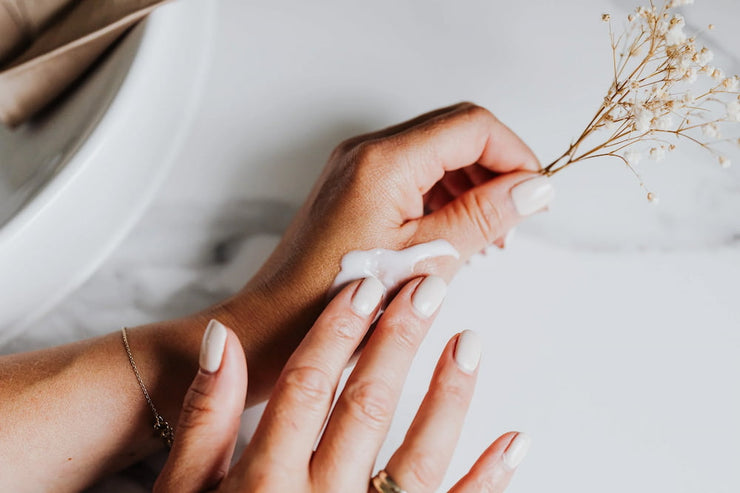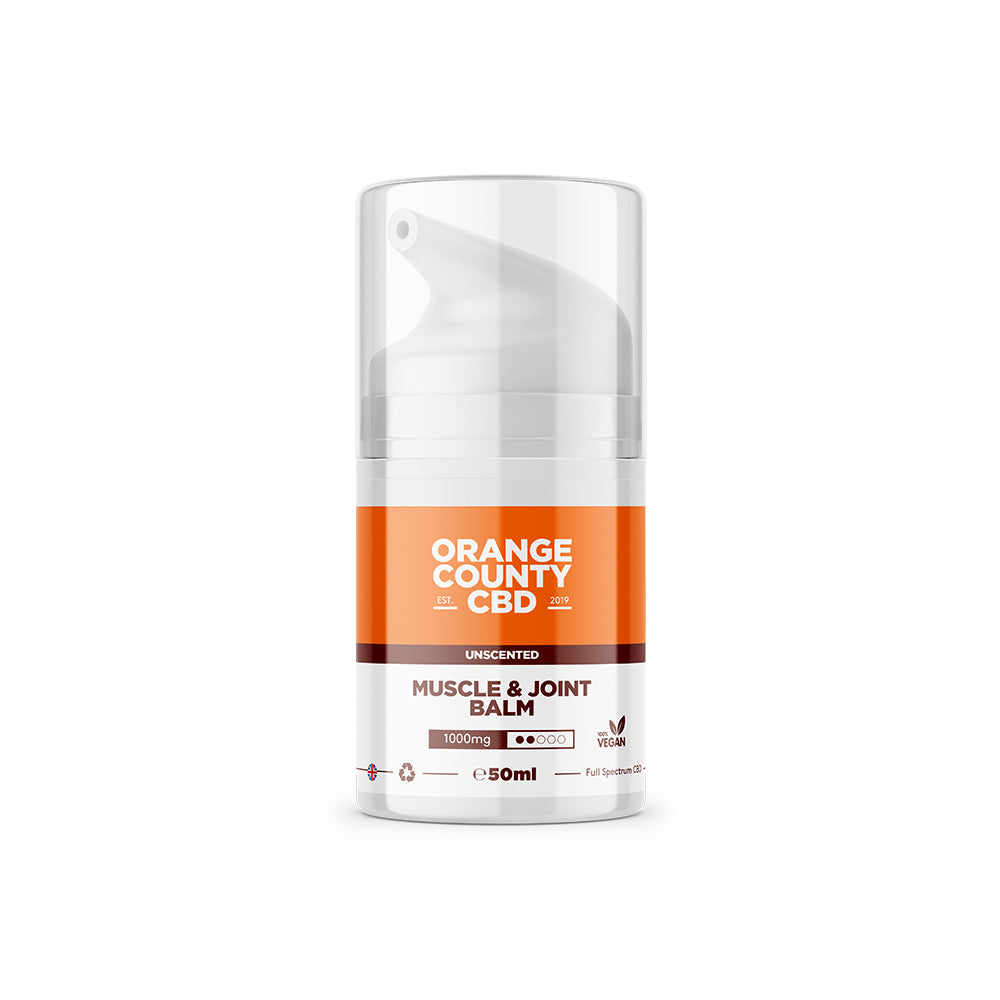CBD for Skin: Benefits, Research & How to Use It Safely


CBD (cannabidiol) is a compound derived from the Cannabis sativa plant, distinct from THC as it does not cause psychoactive effects. The human skin hosts components of the endocannabinoid system (ECS), including cannabinoid receptors that regulate skin functions like inflammation, cell growth, and immune response. This suggests CBD can influence skin biology through these receptors.
Topically applied CBD has the potential to penetrate the skin barrier, although its absorption depends on formulation and skin condition. Studies demonstrate CBD and other cannabinoids can penetrate the stratum corneum to underlying skin layers, allowing interaction with ECS components on skin cells [3].
Table of Contents:[hide]
Can CBD Improve Common Skin Conditions?
Acne and Sebaceous Gland Disorders
Acne involves excessive sebum production, sebocyte proliferation, and inflammation. CBD has been shown to regulate these factors by normalising lipid production and reducing inflammatory markers in sebocytes. In vitro studies found that CBD inhibits excessive sebum synthesis and sebocyte overgrowth, partly mediated through TRPV4 signalling pathways. A small clinical study observed that a 3% cannabis seed extract cream reduced sebum production and redness in acne patients [3].
Eczema and Dermatitis
CBD's anti-inflammatory properties may help reduce redness, itching, and skin dryness associated with eczema and atopic dermatitis. Components similar to CBD, such as palmitoylethanolamide (PEA) in emollients, have shown benefits in reducing symptoms and corticosteroid use in eczema, although placebo effects cannot be fully excluded [3].
Psoriasis and Skin Inflammation
CBD demonstrates anti-inflammatory and immunomodulatory effects that could potentially benefit psoriasis by inhibiting certain immune cell activities and keratinocyte proliferation - a hallmark of psoriasis. However, clinical evidence is limited and mixed, with some studies suggesting caution in interpretation [3].
Skin Aging and Wrinkles
Oxidative stress contributes to skin aging by damaging cells and collagen. CBD shows strong antioxidant and anti-inflammatory properties, potentially protecting skin cells from damage and reducing signs of aging, such as wrinkles and thinning skin. Its antioxidant activity exceeds that of vitamins C and E in some studies, supporting a role in skin rejuvenation [2],[3].
Other Skin Benefits
CBD may aid wound healing through modulation of inflammation and fibroblast activity, though clinical data on topical usage remains preliminary. It has also exhibited antimicrobial properties against drug-resistant bacteria involved in skin infections, adding potential utility for infected or compromised skin [1].
How to Apply CBD for Skin Health
CBD is available in topical preparations like creams, oils, balms, and serums formulated for skin application. To maximise benefits, one should use products designed specifically for topical use ensuring proper penetration and bioavailability. Patch-testing is recommended for sensitive skin.
For general application:
-
Apply to clean skin and massage gently.
-
Follow product guidelines on dosing frequency.
-
Avoid combining with strong actives initially to prevent irritation.
-
Look for products with third-party lab testing ensuring purity and consistency [2].

Safety and Side Effects of Topical CBD
Topical CBD is generally well tolerated with low risk of side effects. Occasional mild skin irritation or allergic reactions may occur but are uncommon. Unlike oral CBD, systemic absorption via topical application is typically low but has been confirmed at low levels in some studies [2].
Beware of products inaccurately labeled or adulterated with THC or other compounds. CBD products should not replace prescribed treatments without professional advice.
Pregnant or breastfeeding individuals should avoid CBD skincare products pending more safety data.
What’s the Difference Between Hemp Seed Oil and CBD Oil?
Although they come from the same plant, hemp seed oil and CBD oil are not the same thing - and it’s important to know the difference when choosing skincare products.
Hemp seed oil is made by pressing the seeds of the hemp plant. It’s rich in nutrients and fatty acids, making it a great moisturiser, but it doesn’t contain any meaningful amount of CBD or other cannabinoids.
CBD oil, on the other hand, is extracted from the flowers and leaves of the hemp plant. This is where most of the active cannabinoids - like CBD - are found. These compounds can interact with receptors in the skin’s endocannabinoid system (ECS), which helps regulate things like inflammation, cell growth, and moisture balance.
So while both oils are natural and beneficial in different ways, only CBD oil can offer the specific skin-supporting effects linked to cannabinoids [1],[3].
Is CBD Good For Your Skin?
There is promising clinical and preclinical evidence that CBD may benefit skin health, particularly for inflammation, acne, eczema, and aging. Yet, rigorous clinical trials with larger sample sizes are needed to confirm efficacy, optimal dosages, and long-term safety.
You should choose high-quality, lab-tested CBD skincare products that are specifically formulated for topical use. You should always consult healthcare professionals for advice on integrating CBD into your routine, especially for treating skin disorders.

Try Orange County CBD Muscle & Joint Balm for Targeted Relief
Orange County CBD's Muscle & Joint Balm is made with high-quality, USA-sourced and UK-formulated broad-spectrum CBD, carefully chosen for its calming and restorative properties. Our THC-free, lab-tested formula is designed to be massaged directly into areas of discomfort, helping to ease tension, support recovery, and soothe overworked muscles or joints. With 100% vegan ingredients and clear, transparent sourcing, it’s a trusted option for anyone looking to add natural, targeted support to their daily routine.
Research
-
Makhakhe L. Topical cannabidiol (CBD) in skin pathology – A comprehensive review and prospects for new therapeutic opportunities. S Afr Fam Pract. 2022;64(1):a5493. https://doi.org/10.4102/safp.v64i1.5493
-
Jhawar N, Schoenberg E, Wang JV, Saedi N. The growing trend of cannabidiol in skincare products. Clinics in Dermatology. 2019;37(3):279-281. https://doi.org/10.1016/j.clindermatol.2018.11.002
-
Baswan SM, Klosner AE, Glynn K, et al. Therapeutic Potential of Cannabidiol (CBD) for Skin Health and Disorders. Clin Cosmet Investig Dermatol. 2020 Dec 8;13:927-942. https://doi.org/10.2147/CCID.S286411

